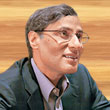Mob,thug,separatist
2016/02/18 10:11:26 網誌分類: 生活
The English-language media used many different words in its coverage of the Mong Kok riot. Hong Kong and overseas media used the word “mob” to describe the rioters (people who riot). A mob is a crowd of disorderly people who cause violence or trouble. The University of Hong Kong Council chairman Arthur Li Kwok-cheung and vice-chancellor Peter Mathieson both used the word “mob” to describe students who twice caused violence during council meetings. The word “thugs” was also widely used to describe the rioters. The word “thug” originated in India. It means a violent person or a criminal. Some media reports said the riot was premeditated (pre-planned, planned beforehand).
The central government used the word “separatists” to describe the rioters. A separatist is a member of a group of people who want to separate from the country they’re in now. I was surprised that the central government used this word to describe the Mong Kok rioters because the central government normally only uses this word to describe people from Tibet and Xinjiang who want to separate from China. I hope the young people who rioted (took part in a riot) in Mong Kok understand that the central government will be even less willing to allow so-called true democracy if it thinks there are separatists in Hong Kong.
* * *
有些民主派的政客,批評政府將大年初一旺角所發生的事定性為暴亂(riot)的主張(assertion)。To assert something意思是堅稱或斷言某事。當人們向警方扔擲(hurl)磚頭、打破商舖和車輛的窗戶及放火,那算不算暴亂(riot)?牛津字典將riot定義為群眾的暴力騷亂。數以百計的年輕人帶上頭盔和面罩,用自製盾牌,整夜跟警方打鬥。因此,若你接受牛津字典的定義,於旺角發生的事,確實是一場riot。
英語媒體用了許多不同的字眼來報道旺角的暴亂(riot)。香港和海外媒體用了mob這個字去形容那些鬧事者(rioters)。A mob 就是一群滋事或引起暴力事件的暴民。香港大學校委會主席李國章和校長馬斐森,皆曾用這個字去形容那些兩度衝擊校委會會議的學生。Thugs這個字也被廣泛使用來形容鬧事者(rioters),此字源於印度,是指惡棍或罪犯。有些媒體報道指,暴亂(riot)是有預謀的(premeditated)。
中央政府用了separatists來形容鬧事者(rioters)。A separatist是分離主義者,意圖脫離國家而獨立。我很意外,中央政府會用這個字去形容旺角的鬧事者(rioters),因為中央政府平常只會用它去形容西藏或新疆那些想脫離中國的人。我希望那些在旺角參加暴亂(rioted)的年輕人明白,若中央政府認為這裏有分離主義份子(separatists),只會更不情願容讓香港擁有所謂的真民主。
中譯:七刻
Michael Chugani 褚簡寧
回應 (0)
我要發表

